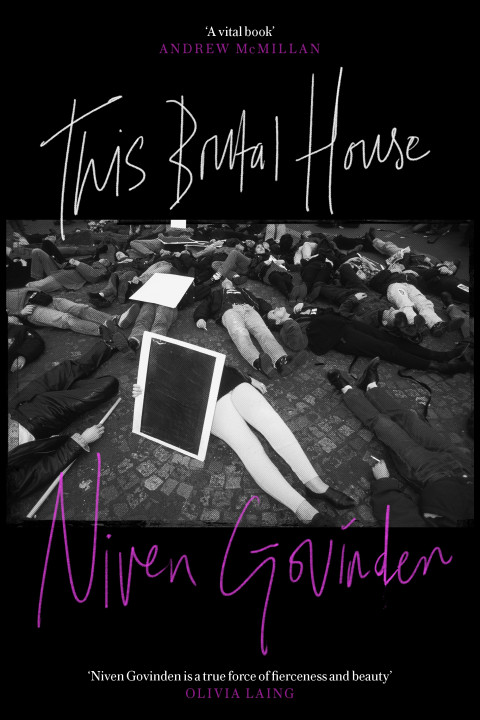Literally minutes after finishing reading This Brutal House and while in the process of checking a reference I discovered Ryan Murphy’s HBO series Pose (currently available on BBC iPlayer and amazingly good). In the space of a week I have gone from knowing nothing about the background to Govinden’s novel to knowing at least something about it. I kind of wish I’d discovered Pose before reading This Brutal House but at the same time I’m glad I didn’t, firstly because I can now enter the world of the book again retrospectively and with added sumptuous visuals, and secondly because reading the book ‘blind’ delivers the kind of literary electric shock that reminds us of why we are readers and (especially) why we are writers.

I found this book difficult (a compliment), not in its subject matter so much as the way in which its content is delivered. I’m not a fan of the omniscient voice narrator – I tend to slide away from fabulism – and so I found the use of the first person plural for the Mothers’ narrative somewhat distancing even as it is perfectly appropriate for its context. The narrative is largely expository, the text so dense in places it feels as if you’re having to fight your way inside it. I found it most effective to read this novel in hour-long chunks, so as to immerse myself fully and not to lose the thread.
All these criticisms, in the end, act as plus points: This Brutal House is the kind of novel that stays with you forever, that, once having read it, you can pick up whenever you want and recapture its sense of itself in just a few splendid paragraphs.
I would have liked the book to deliver more of the atmosphere of the vogue balls themselves, the artistry, the coding, the furious competition. Unsurprisingly I enjoyed the formal invention of the vogue caller chapters and could have done with more of them. Stand-out sequences for me were Teddy’s experience in the Chanel store (everything about that chapter is genius) and his later dialogue with the refuse collectors.
At the heart of the book lies Teddy’s story with Sherry and the fleeting glimpses we are offered throughout the course of the novel prove effective as a uniting thread. To ask for more of Sherry and Teddy would seem too greedy.
I know already that This Brutal House will not be my favourite book from the Gordon Burn longlist – in a sense, it is not a novel that was written ‘for’ me and that is well and good – but I know also that it must be one of the contenders most worthy of winning. In entering new territory, both in terms of form and subject matter, in its willingness to take risks, in its superb level of literary achievement, in its opening of the reader’s eyes to social division and hidden oppression, in its reflection on a historical moment This Brutal House loudly embodies the spirit of the Gordon Burn Prize and I will long treasure what it has brought to me, not just as a reader but as a writer too.
Category is: writing realness. Walk.